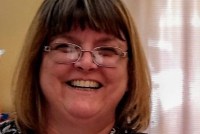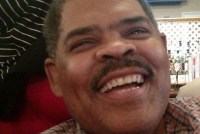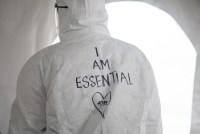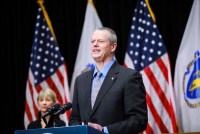Latest KFF Health News Stories
The options to get kids back into schools safely involve staggered start times and a rethinking of mass gatherings such as assemblies, recess and gym time. Meanwhile, some universities start thinking about pushing off in-person classes until 2021.
California Gov. Gavin Newsom laid out a plan that relies on certain requirements the state needs to be able to meet before the state could get back to work. Those include: the capacity for hospitals to handle a potential surge in patients; the identification of promising treatments; the creation of a data-tracking system that provides an early warning if the state needs to reinstate stay-at-home orders; and wide-spread testing, among other things.
Federal Ventilator Program Would Allow Hospitals To Send Unused Machines To Help Hot Spots
“There are over 60,000 ventilators in our hospitals right now that are not in use,” says Adam Boehler, a former HHS official tapped to help with the government’s response. The program is voluntary but would allow hospitals in cold spots to send needed equipment to facilities that are overwhelmed with patients. Meanwhile, the federal government expects to receive tens of thousands more ventilators in coming weeks.
The Washington Post obtained a draft version of the CDC and FEMA plan to reopen the country. The plan lays out three phases: a national communication campaign and community readiness assessment; increased manufacturing of test kits and personal protective equipment; and more emergency funding. Then staged reopenings would begin, depending on local conditions.
New York Gov. Andrew Cuomo even threatened legal action if President Donald Trump tried to interfere with the decision to lift New York’s shut-down orders. And it wasn’t just Democrats who balked at Trump’s claim he is the final decider on when the country reopens. For some Republicans, Trump’s statements sounded like a direct repudiation of a long-standing conservative legal principle.
Trump Latches On To May 1 Reopen Date Despite Warnings, But It’s Not As Easy As Flipping A Switch
President Donald Trump announced a panel filled with dozens of business and labor leaders to help get the country reopen in the coming weeks. But even officials within the administration say that it’s going to be a slow process that may take months. Trump, who has tied his presidency to the success of the economy, has been itching to try to mitigate some of the financial devastation caused by the pandemic.
Trump’s Decision To Cut Off WHO Funding Draws Swift Push Back From Medical Community, Democrats
“During the worst public health crisis in a century, halting funding to the World Health Organization is a dangerous step in the wrong direction that will not make defeating COVID-19 easier,” American Medical Association President Patrice Harris said. President Donald Trump had previously floated the idea, which critics say is the president’s way of trying to shift blame for his own early missteps.
Editorial pages express views about these pandemic issues.
Know of a health care worker who died of COVID 19? KHN and The Guardian are going to document the lives of U.S. workers who succumbed during the crisis. These are the frontline health workers who risk their lives to care for the sick and keep our health care facilities running. Please share their stories here.
On The Eve Of Retirement, VA Nurse Succumbs To COVID-19
Nurse Divina “Debbie” Accad had cared for veterans for over 25 years and was set to retire in April. But after contracting the novel coronavirus, she spent her final 11 days on a ventilator — and didn’t survive past March.
Nurse’s Faith Led Her To Care For Prisoners At A New Jersey Jail
Daisy Doronila had a different perspective than most who worked at the Hudson County Correctional Facility, a New Jersey lockup 11 miles from Manhattan. It was a place where the veteran nurse could put her Catholic faith into action, showing kindness to marginalized people.
COVID-19 Brings Overhaul Of Military Health Care To A Halt
The military is called to action to battle the pandemic, even as the numbers of people infected among its ranks and veterans climb amid a shortage of doctors and nurses.
Nurse At Nevada VA Dies After Caring For Infected Colleague
Nurse Vianna Thompson, 52, spent two night shifts caring for a fellow Veterans Affairs health care worker who was dying from COVID-19. Two weeks later, she too was lying in a hospital intensive care unit, with a co-worker holding her hand as she died.
A Desperate Scramble As COVID-19 Families Vie For Access To Plasma Therapy
As efforts ramp up to collect blood plasma from the first survivors of COVID-19, families of critically ill patients are jockeying to obtain the still-unproven antibody treatment.
Dr. J. Ronald Verrier Was Busy Saving Lives Before The Pandemic
Dr. J. Ronald Verrier, a surgeon at St. Barnabas Hospital in the Bronx, spent the final weeks of his audacious, unfinished life tending to a torrent of patients inflicted with COVID-19. He died April 8 at Mount Sinai South Nassau Hospital in Oceanside, New York, at age 59, after falling ill from the novel coronavirus.
California Nurse Thrived In ER and ICU, But Couldn’t Survive COVID-19
Jeff Baumbach, 57, was a seasoned nurse of 28 years when the novel coronavirus began to circulate in California. He’d worked in the ER, the ICU and on a cardiac floor. Hepatitis and tuberculosis had been around over the years but never posed a major concern.
True Toll Of COVID-19 On U.S. Health Care Workers Unknown
Infection-report forms rarely indicate who is a health worker or whether they survived. States and hospitals tend to keep quiet, citing patient privacy.
Perspectives: Until Patient Advocates Get On Board, Lowering Drug Prices Is A Tough Sell
Read recent commentaries about drug-cost issues.
Are Efforts To Curb High Drug Prices Really Stalled Amid Pandemic?
Read about the biggest pharmaceutical development and pricing stories from the past week in KHN’s Prescription Drug Watch roundup.
Massachusetts Recruits 1,000 ‘Contact Tracers’ To Battle COVID-19
“I know we will succeed somewhat and we will fail somewhat,” says one of the plan’s chief architects. “We won’t be able to find every single person — but we will hopefully prevent a lot of deaths.”











